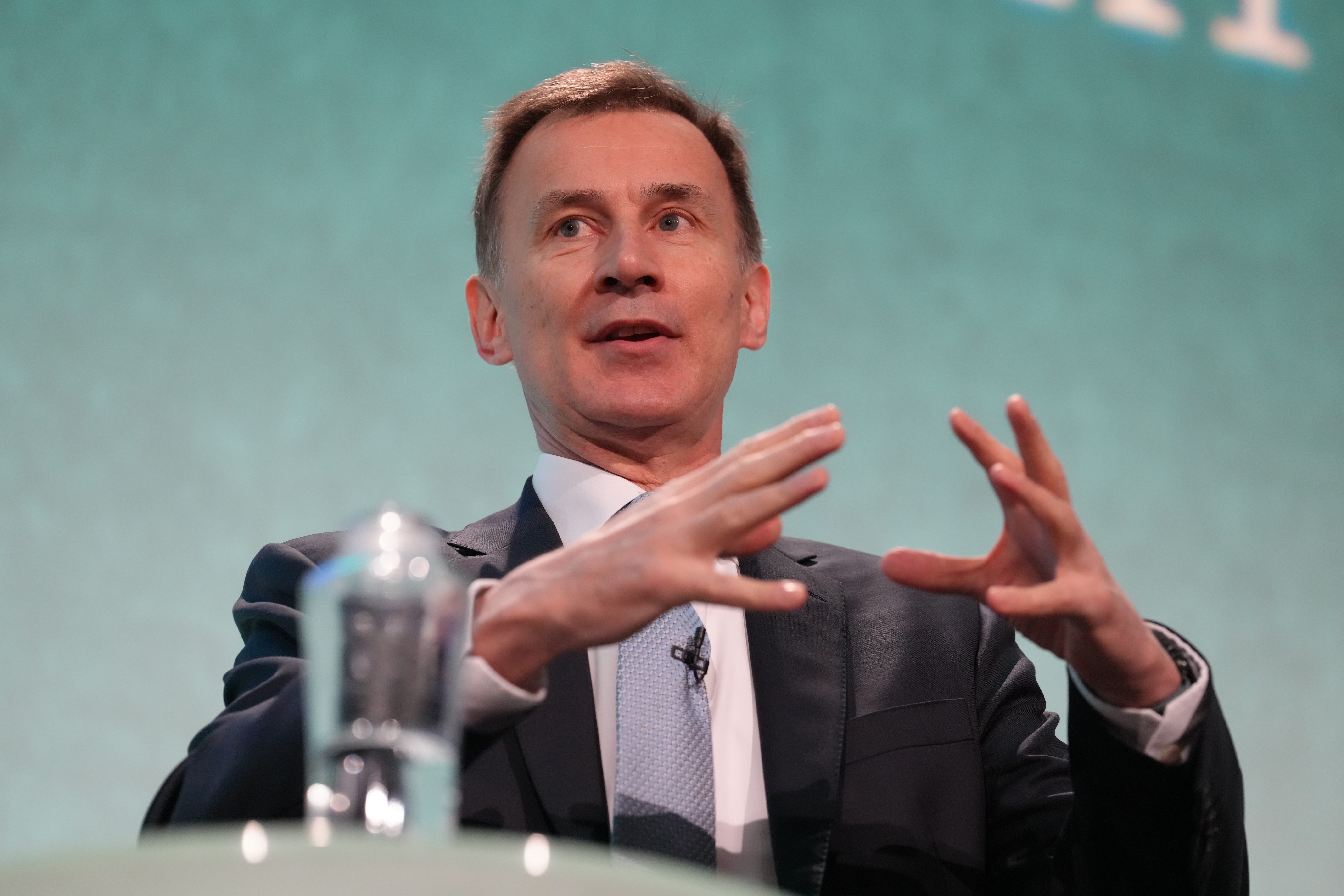Hunt: Falling government borrowing costs may pave way for spring tax cuts
The Chancellor said the Government plans to ‘cut the tax burden if we are able to’ as it prepares for a general election.

Your support helps us to tell the story
From reproductive rights to climate change to Big Tech, The Independent is on the ground when the story is developing. Whether it's investigating the financials of Elon Musk's pro-Trump PAC or producing our latest documentary, 'The A Word', which shines a light on the American women fighting for reproductive rights, we know how important it is to parse out the facts from the messaging.
At such a critical moment in US history, we need reporters on the ground. Your donation allows us to keep sending journalists to speak to both sides of the story.
The Independent is trusted by Americans across the entire political spectrum. And unlike many other quality news outlets, we choose not to lock Americans out of our reporting and analysis with paywalls. We believe quality journalism should be available to everyone, paid for by those who can afford it.
Your support makes all the difference.Jeremy Hunt has signalled that lower government borrowing costs may give him the fiscal headroom to cut taxes in his spring Budget.
It comes after official figures showed UK inflation eased back to its lowest level for more than two years last month, lowering the cost of servicing national debt.
With inflation coming down and hopes for interest rate reductions next year, economists have predicted that the Chancellor could see his headroom roughly double as a result.
This could allow him to cut personal taxes in the spring 2024 Budget, which he is expected to use to set the tone for a general election which could take place later in the spring or autumn.
Mr Hunt told Bloomberg Television during a visit to Switzerland on Wednesday that the Government plans to “cut the tax burden if we are able to”.
But he cautioned that it is not clear what he can do before he sees the new Office for Budget Responsibility forecasts next year.
“If debt interest payments go down then potentially that gives me more headroom and I could use that in lots of different ways, but I would never use it in a way that would compromise the battle against inflation,” Mr Hunt said.
“We would like to bring down the tax burden in a way that is responsible.”
The Chancellor began to ease the historically high tax burden in his November autumn statement by cutting national insurance and announcing savings for businesses, delighting Tory MPs who have long lobbied for tax cuts.
Despite the earnings bonus, millions of workers will face a squeeze on their finances with the tax burden still set to reach a record high.
On Wednesday, the Office for National Statistics said the rate of Consumer Prices Index inflation fell to 3.9% in November, down from 4.6% in October, and the lowest level since September 2021.
While Prime Minister Rishi Sunak has met his self-imposed target of halving the rate of inflation in 2023, prices are still rising at almost twice the level of the Bank of England’s 2% mandate.
Mr Hunt said there is “still work to do” in bringing down inflation and that it continues to be ministers’ immediate priority.
A faster rate of decline in inflation could also prompt the Bank of England to cut interest rates, something which would ease the financial pressure on mortgage holders in election year.
The Chancellor declined to comment on the outlook for interest rates, but said: “I think people will start feeling more optimistic about their personal finances if they see interest rates on a downward trajectory.”